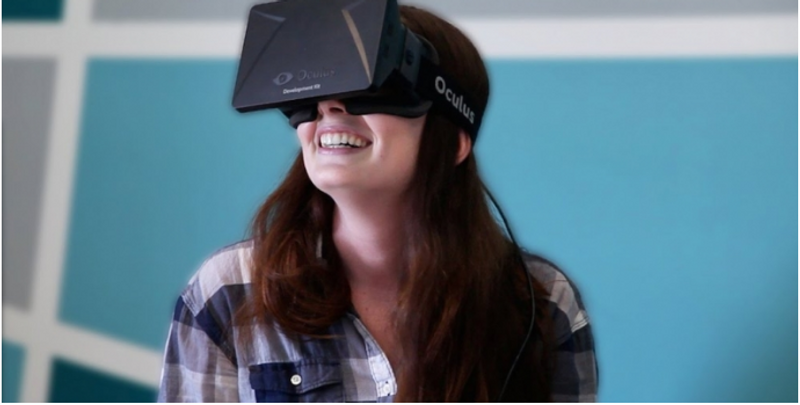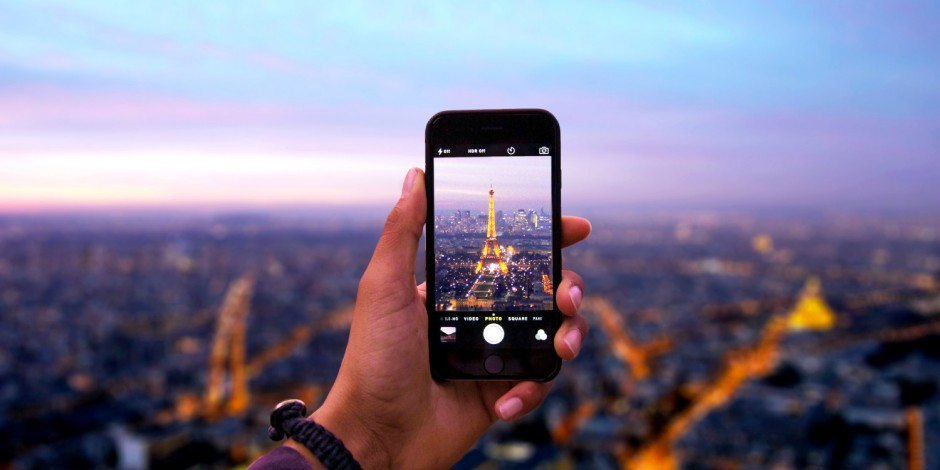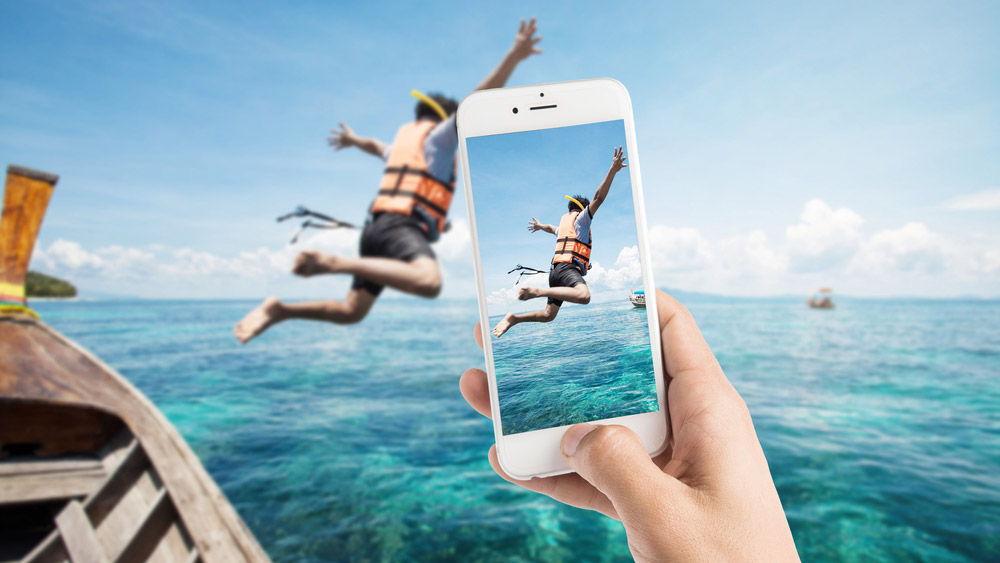Hotels and Virtual Reality: Marketing A New Travel Experience
Angela Hassassian
Feb 02, 2018 - 7 min read

Virtual reality has already begun to make big waves in the marketing industry, and arguably the best case would be in the realm of hospitality. Airlines, tour agencies and hotels have been experimenting with the new medium to see what they can do to attract, engage and keep customers. Virtual reality is here to stay, and it may just be the next best way to reach Gen Z.
How Popular Will VR/AR Be, Really?
We’ve seen the statistics, predictions and forecasts. We’ve watched as the prices of high-end VR headsets and the next generation technologies have gone down. We know it’s coming. We know it’s inevitable. Forbes goes so far as to say that 1 percent of the world’s population will possess headsets by the year 2020. That’s not far off. In fact, that’s pretty close. According to Forbes, “From 2015-2020, both mobile and static AR/VR are forecast to coexist with products geared toward more mainstream consumers arriving to market at lower unit prices.”
They go on to say that the majority of these consumer devices will be found in Western Countries like the US or the UK. This is an amazing target audience when it comes to any kind of marketing, especially when it comes to travel. There is so much potential that we can tap into, both in VR and AR (Augmented Reality). This is really no surprise, considering how powerful VR and AR really can be when it comes to making an impact, engaging consumers, leaving a positive memory and sparking their imagination. There’s nothing like a dive into an immersive world to wake up the inner wanderlust in a person.
Travelers are already getting a taste, as VR marketing is starting to get implemented in businesses and even more specifically, hotels. The polls are in, consumers are highly responsive to VR. “Destination British Columbia was one of the first travel destinations to give VR a try. The Canadian-based destination marketers created a VR experience of what it’d be like to traverse British Columbia’s Great Bear Rainforest. The results, according to Maya Lange, Destination BC’s vice president of global marketing, was a 5 percent increase in visitors.” - YouVisit
VR Marketing in the Travel Industry
VR provides the perfect mechanism for experiencing travel destinations, hotel rooms, resorts and tours before committing to actually booking your trip. That’s why several hoteliers and travel industry professionals have recognized VR as a new method to be incorporated into their marketing strategies. Not only is it effective in showing off their products and services in a much more engaging way, but it also will be appreciated by the more tech-savvy generation. They will recognize it as an attempt to reach out to them, specifically.
The fact that those in the tourism industry are willing to go the extra mile to attract these customers indirectly shows that they are going to provide the best user experience available today. By willingly allowing their potential guests to experience what they have to offer and test it before actually committing, hotels are showing confidence in what they are offering. It also shows that they are willing to invest in creating an offer that their competitors can’t beat. That combination of a confident and tech-savvy approach will go a long way in marketing to newer generations.
Is it mandatory? Absolutely not, this is something that enriches age-old marketing methods, not replaces them entirely. It simply takes the strategy to a new level by introducing a non-traditional approach. VR is not going to take the place of advertising or campaigns, we simply are not there yet, but it certainly adds excitement and novelty to the industry.
Naturally, it helps to give tourists a test drive of what they are signing up for. It’s a repackaged “try before you buy” technique. People can explore their accommodations, walk through the halls, look around the rooms, get a glimpse of the surrounding location and even discover nearby tourist attractions. All these things, when done in an immersive and visually appealing way, can drive customers to book the hotel! Bottom line being, a well implemented VR Marketing campaign can result in the higher popularity of the hotel and drive more bookings.
Travel Experiences Changes With VR
The implementation of this new technology might begin in the planning stages of a trip, but it doesn’t necessarily end there. This technology is going to reshape the entire travel experience. The combination of VR and AR creates a goldmine of unique approaches to enhancing the travel experience from start to finish. Many key players in the tourism industry are jumping the bandwagon, from OTA’s, to airlines, hotels to theme parks, and to VR content creators like 360Stories.
We recognize the amazing opportunity that this new technology presents us. There are so many details that travelers want to see to before making the final decision to book a specific accommodation, and VR is helping them to get information quickly. A well made 360 video tour will give the consumer infinite and accurate insight into the accommodation which no amount of text could do with equal success. The simple process of exploring via VR will open the consumers' appetite for more. In essence, the travel experience is already beginning before they ever leave home.
Taking the tech further, I found an example of an application which allows the entire booking process to be done via virtual reality headsets! Everything from booking a room, choosing your seat for your flight, and renting a car can be done seamlessly using VR. Once again, the excitement for travel starts from home.
Once they have booked a hotel and are ready to pack their bags, the VR experience still continues as they explore all the travel destinations and nearby attractions that they can visit upon arrival. They can envision precisely what they can expect on their upcoming adventures.
Travel Experiences Changes with AR
Coupled with augmented reality, their sightseeing experience can be enriched with information given to them at any given tourist site. Make no mistake, AR is also going to make a major impact on the travel industry. For those who are unfamiliar with AR, I will be writing a separate post about it soon, but for introduction's sake consider the following. Augmented reality gives us the ability to alter real-life surroundings with digital technology, meshing the two together. Using an AR compatible device (like a tablet or a smartphone) we can look through the lens of the mobile device’s camera and see our surroundings in a new and enhanced way.
The most popular example of AR is the hit game Pokemon Go, where you could see Pokemon characters in your real life surroundings (like your living room) via your phone camera. Now consider how this technology can be used in the travel industry. A tourist could look through the lens of their phone at a historical site, and get relevant, engaging and interactive information about that site. This technology is already being used in hotels! There is a working example of a hotel which has a wall map, that when viewed through a smartphone application, provides guests valuable information about local attractions and how to get there.
The possibilities for AR is unlimited! Imagine pointing your phone at a restaurant and having access to reviews, or pointing at old ruins only to see what it would have looked like in its former glory! That is the kind of content that 360Stories, among other VR/AR pioneers, are working to collect and share with the world. It’s truly a great opportunity, to leverage this technology in order to enhance the travel experience for all. Stay tuned to see a post on who’s doing what in the industry and what the results have been so far!


